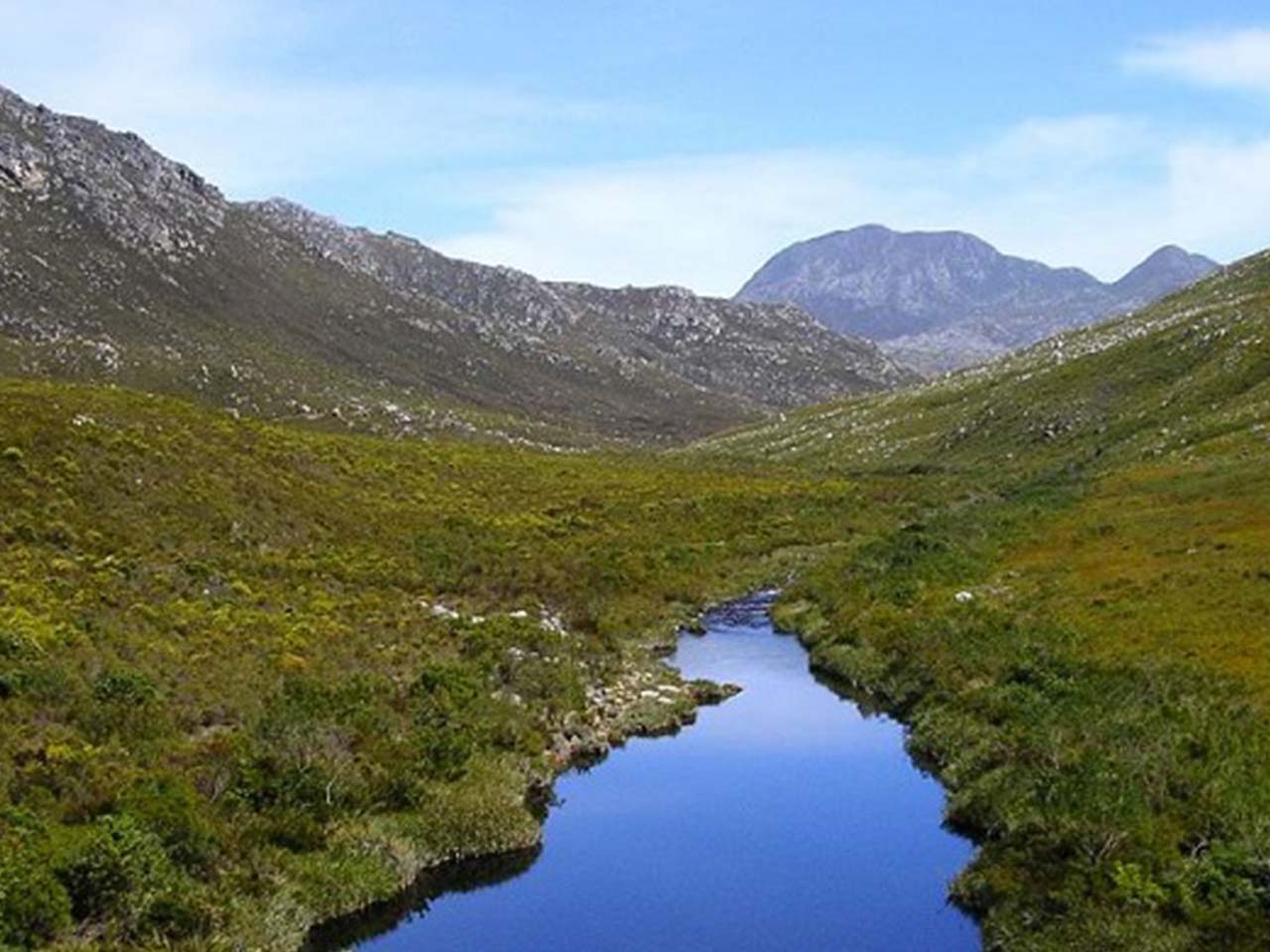The KOUP Area Wide Planning Project is creating employment for 28 people, providing them with an income for up to eight months of the year, depending on the availability of funding. Since 2011, the project has created 6300 person days employment, with around 300km of fencing completed. Research has found the project to be transformative – not only by creating jobs, but also by ensuring the benefits of the project have
been spread more widely, while deepening the farmers’ understanding of farmworker empowerment. A household survey is now being undertaken, to capture the impacts of the project. The survey is being driven by Deona Strydom of the Department of Agriculture: Rural Development Coordination (Farmworker Development).
Project partners:
- Department of Agriculture (LandCare)
- Department of Agriculture (Farmer Support & Development)
- University of Cape Town (Centre for Social Science Research)
The KOUP community between Beaufort West and Laingsburg have joined forces with the Department of Agriculture (LandCare division) and the University of Cape Town (UCT) to address the dual challenge of unemployment and the impact of predators on farming operations. The project is called the KOUP Area Wide Planning Project, and has seen neighbouring producers farming on 21 properties over an area of 80,000 hectares drive a major areawide fencing initiative. The project set out to facilitate sustainable agricultural livelihoods and wildlife stewardship, reaching many of the poorest members of the Laingsburg community.
The challenge Little is known about the impact of jackal and caracal on sheep numbers. However, it’s believed that the number of breeding sheep ewes fell from 200,000 in 1956, to just 46,000 today. That has been partly put down to the effects of predators. At the same time
employment has fallen by three quarters on farms in the area in the past few years, with most farms only employing one staff member today. To better understand these challenges, LandCare partnered with the community, and developed the KOUP Development Plan, which offered various solutions, including the fencing of areas, and the creation of scanning and research projects.
The fencing initiative The KOUP fencing initiative set out to fix fences over 80,000 hectares.
The fencing scheme has worked to:
- Ensure the veld is used appropriately and is protected by adhering to the grazing capacity of the veld;
- Regulate the numbers of animals on the veld;
- Provide for farm boundaries.
Farmers took ownership of the project by offering co-funding support: they transport the fencing teams, provide the rocks to stop predators from creeping underneath, and they maintain the fences.
How the project works
A non-governmental organisation called AgriREAP has ensured staff are trained and are ready to undertake the fencing work, and has also assisted
with the administration of the project. Four foremen were then appointed, with each leader managing a further five workers. The teams fix approximately 2km of fencing per day, and pack stones at the base of the fences.
Research projects
At the same time, UCT’s Centre for Social Science Research (CSSR) embarked on a landscape-level study of all aspects of the impact of predators on
the livelihoods of the KOUP community. A camera comonitoring project is looking to determine the extent of biodiversity in the region, and to gain further knowledge on the behaviour of animals here, particularly the predators. The CSSR is also looking to determine how farmers are currently handling the predator problem, and how the fencing initiative has benefited and empowered local communities. The research is driven by Beatrice Conradie, Associate Professor in Economics and Director of the Sustainable Societies Unit in the CSSR, Nicoli Nattrass, Professor in the CSSR, and Marine Drouilly, a PhD student.
A comprehensive scanning project – scanning ewes to determine conception figures, before predators can capture lambs – is also being undertaken with the support of Dr Jaco Pienaar of the Department of Agriculture: Veterinary Services.
For more information, contact:
Phyllis Pienaar
District Manager: LandCare Central Karoo Western Cape Department of Agriculture
P.O. Box 66
Beaufort West
6970
South Africa
Email:phyllisp@elsenburg.com
Tel. +27 23 415 3134
Fax: +27 23 415 2385
Department web:www.elsenburg.com
Provincial web:www.westerncape.gov.za
Or visit:
www.cssr.uct.ac.za









